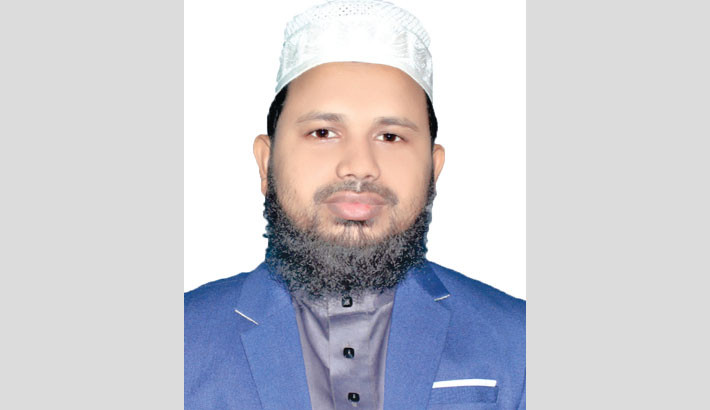
Jubayer Ahmad
The word Eid means ‘frequent coming’, ‘festival’, and ‘happiness’. It is commonly used to refer to two major festivals of Islam. Muslims go to Eidgah (an open field where Eid prayer is performed) or mosques to perform two Rakats obligatory prayers and have days of celebrations in the form of feasts with family members and friends.
There are two Eid festivals in Islam. The first and the biggest is Eid-ul-Fitr and the second one is Eid-ul-Azha which is celebrated on the 10th day of Dhul-Hijjah, the last month of the lunar calendar.
Both of the Eids were originated by the last Messenger of Allah (PBUH) in the second Hijri (610 AD). After his historical migration to Madinah, the Messenger of Allah (PBUH) observed the people celebrating two days, one named Nawruz, which fell on the full moon of autumn, and the other Mehirjan, which followed the full moon of spring. They would play with joy and vulgar amusements. Then the Prophet (PBUH) replaced these festivals with two Islamic days of festivals: Eid-ul-Fitr and Eid-ul-Azha.
Anas Ibn Malik (Ra) reported that when the Prophet (PBUH) came to Madinah, the people had two days in which they used to entertain and amuse themselves. He asked: “What are these two days?” They said: “We used to amuse ourselves and take pleasure in these two days during the Jahiliyyah (Days of Ignorance). The Messenger of Allah said, “Allah has substituted for you something better than these two; the Eid of Fitr and the Eid of Azha.” (Abu Dawood).
Eid-ul-Fitr means ‘festival of the breaking of the fast’. It is the biggest religious festival celebrated on the first day of Shawwal (the tenth month of the lunar-based Islamic calendar). It has been named Eid-ul-Fitr because Muslims across the world break the long fast of Ramadan on this day. This day is a great blessing and bounty from Allah (SWT) to mankind. Because it is the blessed day when Allah gives pleasure, mercy, and rewards to all the devotees who have observed fasting and performed night prayers (Taraweeh) throughout the month of Ramadan.
Anas Ibn Malik (Ra) narrated that the Messenger of Allah (PBUH) said, “When the believers have presented themselves at their place of prayers (Eidgah), Allah will say to His angels, ‘O My angels, what is the recompense of the laborer, who has fulfilled their duties?’ The angels will reply, ‘Our Lord, You will pay him his wages in full!’ So Allah will say, ‘I now call upon you to bear witness, O My angels, that I have conferred My acceptance and My forgiveness as the reward for their fasting and night vigil during the month of Ramadan.’ Allah will then say, ‘O My servants, By My Might and My Majesty, I will not put you to shame. Now you may depart, knowing that you have been forgiven. You have won My approval, and I am well pleased with you.’” (Bayhaqi).
There are two obligatory (Wajib) acts in Eid-ul-Fitr. The first is to pay Zakat-al-Fitr or Sadaqatul Fitr before leaving for Eidgah. It is not obligatory for every Muslim. The rich Muslims who are adult, sane, and have a minimum amount of extra wealth (87.48 grams of gold or 612.36 grams of silver or its equivalent in cash) called Nisab out of their personal items (home, furniture, cars, food, clothing) are obliged to pay Zakat-al-Fitr before Eid prayer. Zakat-al-Fitr or Fitrah is prescribed to purify the fasting Muslim from all his/her minor mistakes that he/she might have committed during fasting and to provide for the needy, during the festive season of Eid-ul-Fitr.
Abdullah Ibn Abbas (Ra) narrated that “The Messenger of Allah (PBUH) made Zakat-al-Fitr obligatory as a means of purifying the fasting person from idle talk and foul language, and to feed the poor. Whoever pays it before the prayer, it is an accepted zakah, and whoever pays it after the prayer, it is just a kind of charity (sadaqah).” (Abu Dawood).
Fitrah or Zakat-al-Fitr can be given in the form of wheat, barley, raisins, dates, or cheese. A Muslim can pay Zakat-al-Fitr by any of these items or its equivalent market value based on his/her financial capacity. In Bangladesh, the minimum Fitra has been fixed by the National Fitra Fixing Committee at Tk110 per person, while the maximum is Tk2,805 this year. It is fixed on the basis of market prices of flour, dates, cheese, raisins, and some other essentials. If a Muslim pays in wheat or flour, he/she must give 1.65kg or its market value of Tk110. If he/she pays in barley, 3.3kg or its equivalent market value of Tk530 must be given. If paid in dates, 3.3kg or its value of Tk2,310. For raisins, 3.3kg or Tk1,980 must be given, and for cheese, 3.3kg or its market value of Tk2,805 must be provided.
Abdullah Ibn Umar (RA) reported that “The Messenger of Allah (PBUH) made Sadaqatul Fitr obligatory: one Sa' (approximately 3.3kg) of dates or barley for every Muslim, whether slave or free, male or female, young or old.” (Sahih Bukhari).
The second and main obligation of Eid-ul-Fitr is to offer two Rakats Eid prayers with the congregation. Praying to Allah on Eid day means that a Muslim understands and realise the fact that all the joy and pleasure in his/her life is a blessing of Allah and they need to be thankful to Allah for it. Our beloved prophet (PBUH) and his companions used to say two Rakats Eid prayers in an open area rather than a mosque. Jabir bin Samurah (Ra) said, “I prayed with the Messenger of Allah the two Eid prayers more than once or twice, without an Adhan or Iqamah.” (Sahih Muslim).
The writer is the khatib of Baitush Shafiq Mosque and principal of Baitul Hikmah Academy, Gazipur

